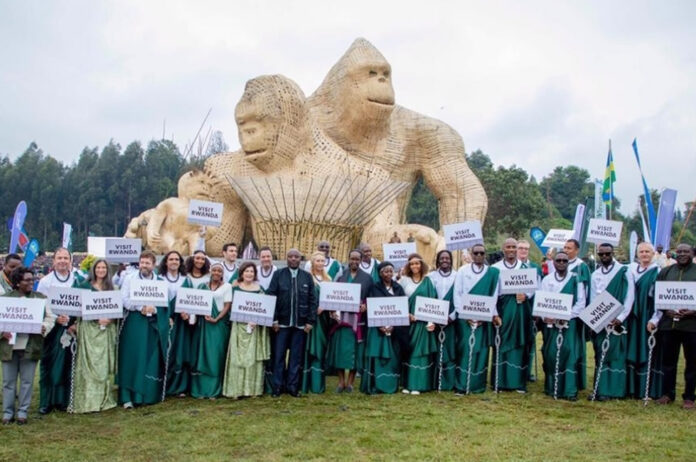By Didier Scaillet
We all knew coming in that we would experience incredible nature – a land of a thousand hills and wildlife, in particular the gorillas – and it surely did not disappoint. On the contrary.
It is our final morning in Kigali, as the last SITE Executive Summit participants – a diverse yet very cohesive – group of Incentive Travel professionals from Belgium, Canada, China, India, Italy, Ireland, Poland, South Africa, UK and USA – leave this incredible country. Throughout this journey, I dare say that #SiteUnite was as strong as it gets.
We had an extraordinary few days discovering how unique this nation is. After a fruitful exchange between the SITE delegation, local authorities and the private sector, we set off to explore the destination.
We all knew coming in that we would experience incredible nature – a land of a thousand hills and wildlife, in particular the gorillas that live in the Volcanoes National Park in northern Rwanda – and it surely did not disappoint. Here are few things that I did not realize about Rwanda before I came here:
- Rwanda is the fourth safest country in the world and the safest in Africa.
- Rwanda’s Parliament is made up of 70% women (highest in the world) and women are playing a huge role in the country’s economic miracle (7-8% GDP growth). Testimony to gender equality, we met Clara, the CEO of the Rwanda Development Board (RDB) and one of the most influential people in Rwanda’s Vision 2020 plan. Belise who is the RDB Chief Tourism Officer and Nelly who was recently appointed from the Office of the President to CEO of the Rwanda Convention Bureau.
- Rwanda is amazingly clean. I am not talking most European city kind of clean, I am talking Singapore, Monaco or Switzerland clean. Everywhere Rwandans spend a few hours every day cleaning the streets and their neighborhoods
- The Rwandans are among the friendliest, most hospitable, smiling and positive people that I have encountered (up there with the Filipinos and Omanis) and they are ready to host the world (no visa requirements).
- After enduring a terrible genocide in 1994, Rwandans faced their history in a remarkably courageously way (the Genocide Museum does not cut corners). This nation is demonstrating a tremendous sense of resilience, inclusiveness and faith in the future under visionary leadership. Rwanda is actively promoting Ubumuntu, a universal bond of sharing that SITE Executive Summit Rwanda_Ubumuntu.jpgconnects all humanity
Because of this extraordinary experience, we are committed to furthering our partnership with the Rwanda Convention Bureau and the Rwanda Development Board to support the country’s vision to become a world-class Incentive Travel destination. It has all the ingredients and now 12 remarkable Ambassadors.
These are just a few of my impressions of this very unique country.
The saying goes that, when you leave Africa, a part of your heart and soul stays.
So true.



